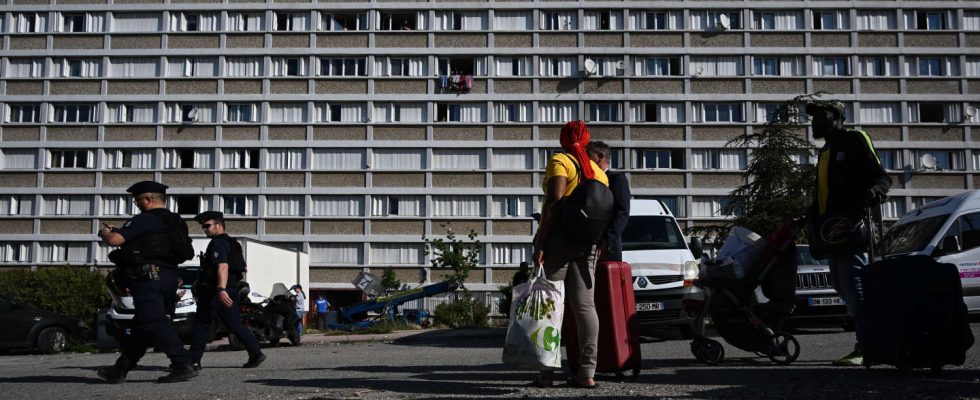The Parliament definitively adopted, Wednesday evening June 14, by a last vote of the Senate, a bill of the presidential majority toughening the sentences against the squatters. The senators validated in second reading, without modifications, the version voted by the National Assembly at the beginning of April. The vote on this text, which also speeds up procedures in the event of unpaid rent, was won by 248 votes to 91, despite a last stand from the left.
The Keeper of the Seals, Eric Dupond-Moretti, defended a drafting “balanced, because it reinforces the rights of owners without calling into question the protection of occupants in good faith”. The bill “aimed at protecting dwellings against unlawful occupation” of deputy Guillaume Kasbarian (Renaissance) has been in the business since the end of 2022, following several highly publicized housing squat cases.
“The squat is a violation of intimacy and we want it to be suppressed without weakness”, said Dominique Estrosi-Sassone; Senator Les Républicains (LR) is the author of a bill to guarantee real estate against squatting, which the Senate adopted in early 2021.
An “automatic termination clause”
The Kasbarian bill triples the penalties for squatters – up to three years in prison and a fine of 45,000 euros. According to an addition by the senators at first reading, the judge will no longer be able to grant delays to squatters whose eviction has been judicially ordered. A new offense is also created, punishing with a fine of 3,750 euros propaganda or advertising in favor of methods encouraging the invasion of a home.
The bill also speeds up procedures in the event of unpaid rent. In particular, lease contracts systematically provide for a “automatic termination clause”. Activating this clause will allow a landlord to obtain the termination of the lease without having to take legal action and, thus, to be able to obtain an eviction more quickly.
Finally, an article from the Senate aimed at “to balance the text by strengthening social support for tenants in difficulty” was kept by the deputies.
“A risk of social bomb”
But the text remains unacceptable for the left and associations fighting against poor housing. In the Senate, the CRCE group, with a communist majority, unsuccessfully defended a motion to reject the text en bloc, “true criminalization of poverty” according to Pascal Savoldelli, “an offensive against tenants and against the most disadvantaged” for Marie-Noëlle Lienemann.
The Right to Housing association had called for a rally at the end of the afternoon in front of the Luxembourg Palace, under the slogan “Housing is not a crime, it’s a right! » In its annual report, the Abbé-Pierre Foundation estimated the number of homeless people in France at 330,000; 30,000 more than the previous year. In addition, the number of households applying for social housing – it stands at 2.42 million – has never been so high.
Newsletter
” Policy “
Every week, “Le Monde” analyzes for you the issues of political news
Register
“Applying this text to the letter could double the number of homeless people”, said environmental senator from Bouches-du-Rhône Guy Benarroche, citing Secours Catholique. For the socialist Denis Bouad (Gard), the bill “seems symbolic of a certain blindness to the housing crisis”.
Housing Minister Olivier Klein recently conceded that there was “a risk of social bomb” linked to the violent crisis in the sector. “This bill was never intended to solve the housing crisis in our country, but it helps to fight against abuse, against those who take advantage of the system and rip off the little people”he told the Senate.
The Prime Minister, Elisabeth Borne, announced several measures in early June to try to stem the crisis, without convincing. The General Delegate of the Abbé-Pierre Foundation, Christophe Robert, spoke of a feeling of ” hangover “ after six months of work by the National Housing Refoundation Council.

